Ev Global
China’s EV Market Welcomes Freelander: Jaguar Land Rover and Chery’s New Venture
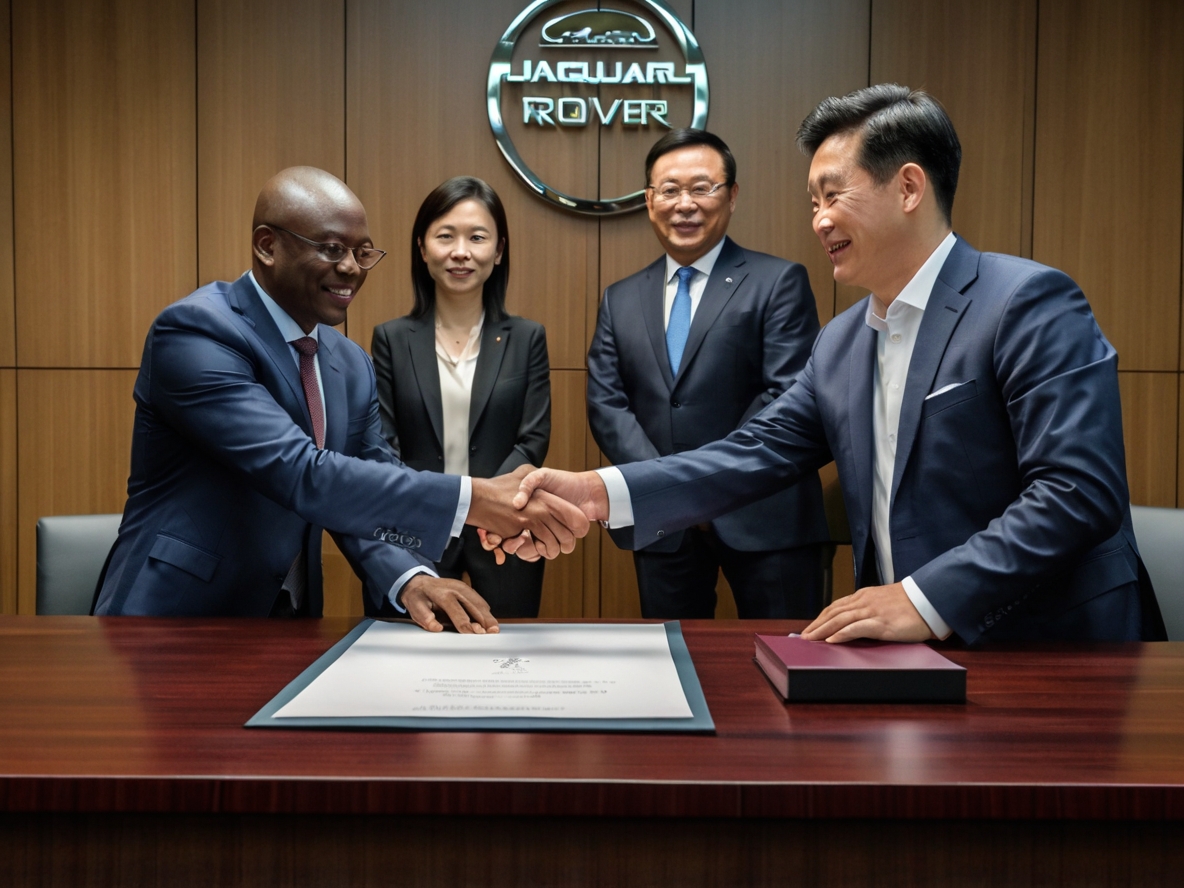
Jaguar Land Rover (JLR) and Chery Automobile Company (Chery) are set to strengthen their joint venture, CJLR, in China, having recently signed a Letter of Intent that focuses on advancing electrification efforts in the region.
CJLR, the 50/50 joint venture between JLR and Chery, aims to harness Chery’s strong market position in China alongside JLR’s rich design heritage to develop a new range of electric vehicles (EVs). These EVs will be introduced under the renowned Freelander brand name, a significant step in the strategic focus of this collaboration.
The proposed new licensing agreement stipulates that CJLR will create a cutting-edge portfolio of EVs based on Chery’s advanced EV architecture, with exclusive marketing rights under the Freelander name. This initiative will revitalize the Freelander brand, forming a new value creation system that remains independent of Chery’s existing portfolio and JLR’s luxury brands.
Adrian Mardell, CEO of JLR, highlighted the importance of this collaboration, emphasizing JLR’s commitment to the Chinese market and the promising future it holds for CJLR. “Today we are taking this important strategic step for JLR, one which underlines our ongoing commitment to China and complements our existing business in China. We believe that working together to develop new models of collaboration for the world’s largest and fastest-growing electric vehicle market, combined with the appeal of the Freelander brand, promises a very exciting future for CJLR,” Mardell stated.
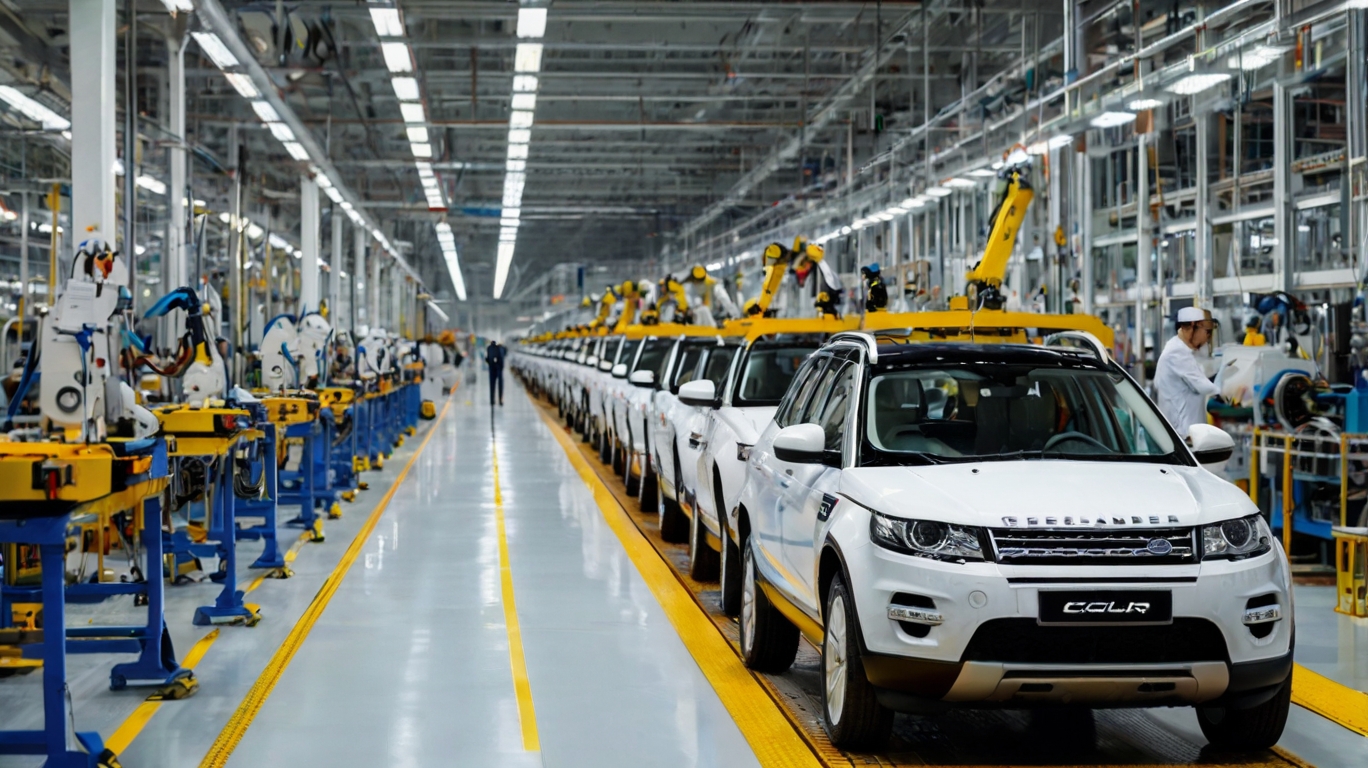
Yin Tongyue, Chairman of Chery Group, also praised the innovative partnership, noting that it blends Chery’s advanced EV technology with the Freelander brand’s distinctive appeal, offering a unique electric vehicle experience to consumers both in China and globally. “Chery and JLR are forging an innovative collaboration model that epitomises our growth path for the future. The blend of Chery’s advanced EV technology with the distinctive appeal of the Freelander brand will undoubtedly provide China and global consumers with a unique electric vehicle experience,” Tongyue commented.
The collaborative design efforts of Chery and JLR’s creative teams aim to position these vehicles in the rapidly expanding mainstream New Energy Vehicle (NEV) market in China. Production is slated to occur at CJLR’s existing manufacturing facility in Changshu, further solidifying the joint venture’s commitment to innovation and growth in the electric vehicle sector.
article by

Blog
Kia Carens Clavis EV: Kia’s New Electric MPV Set to Launch on July 15
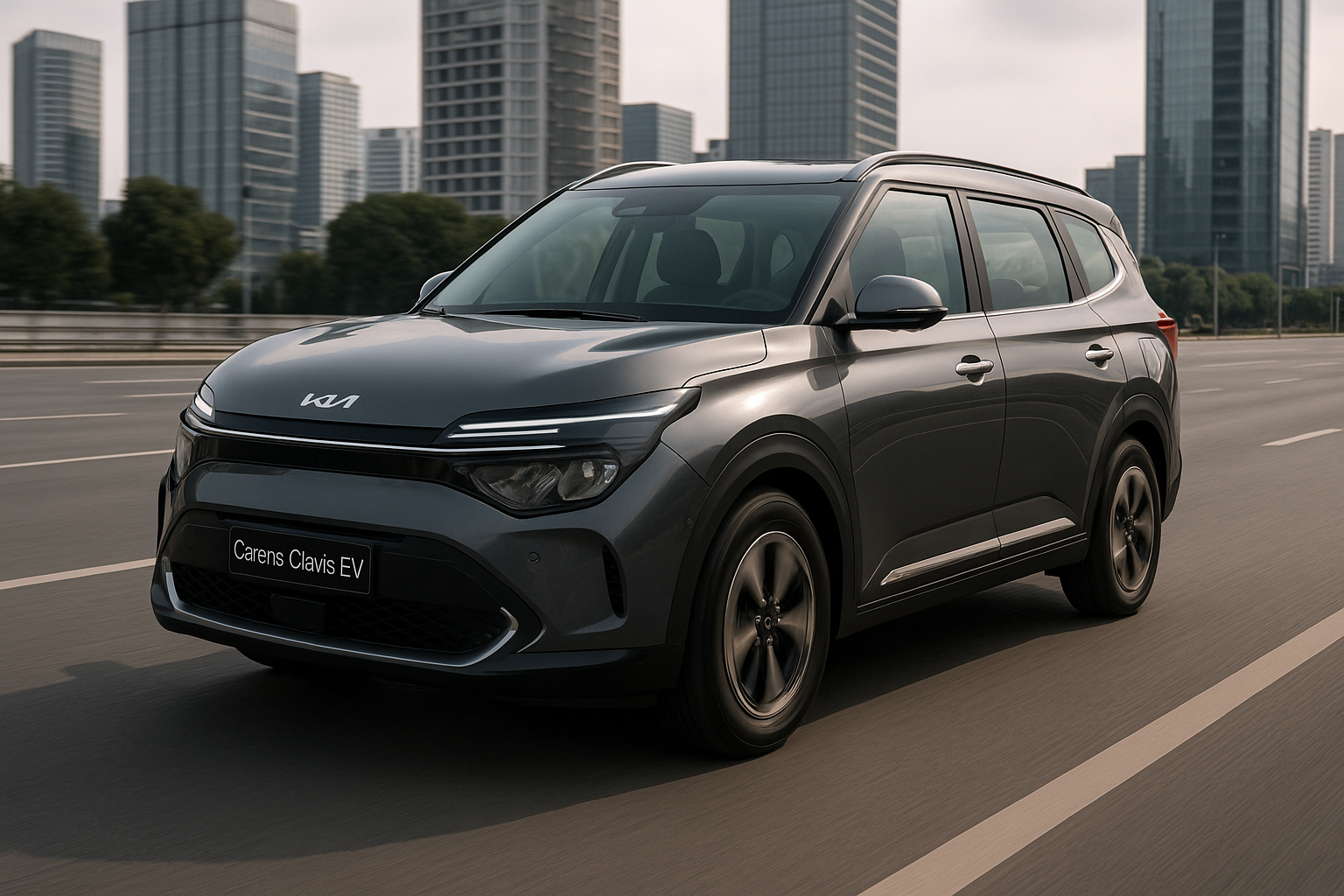
Kia’s New Electric Ride: The Carens Clavis EV
So, here’s the scoop: Kia is about to launch something pretty exciting — the Carens Clavis EV, which is an electric version of their popular Carens MPV. And trust me, it’s one to keep an eye on.
Kia’s making a bold move into the electric vehicle (EV) market with this one. With seven seats, a 500 km range on a single charge, and some pretty impressive tech, this car is aiming to make a mark. It’s expected to launch around July 15, 2025, so we don’t have long to wait!
Why the Carens Clavis EV Is a Game-Changer for Families
The thing about this car is that it’s designed for families. If you’ve ever felt like electric cars are just for single people or city commuters, Kia is here to prove that’s not true. With the Carens Clavis EV, you get the perfect mix of space and eco-friendly driving.
The big selling point? The 500 km range. This is going to be a huge deal for families who want to go on road trips without constantly worrying about finding a charging station. That range is perfect for weekend getaways or long drives with the family, especially when you’re going to be on the road for a while.
What Makes the Carens Clavis EV Stand Out?
Kia has thought about comfort here. This is a family car, so the three rows of seats are perfect for bigger families or anyone who’s constantly shuttling kids and their friends around. Plus, with seven seats, you won’t be squished in the back.
And since it’s electric, it’s going to be a smooth, quiet drive. No more engine noise — just the quiet hum of the road, making your ride that much more peaceful.
Inside, expect high-tech features like smart infotainment systems, driver-assist technology, and all the cool gadgets that make driving easier and more fun. So whether you’re in the city or driving out for a weekend, it’s going to feel like a premium experience.
Is It Easy to Drive? You Bet!
One thing we know for sure is that the Carens Clavis EV will be easy to drive. Electric cars are known for being super smooth and responsive, and this one will be no exception. With instant torque, you get smooth acceleration, which means no lag when you hit the gas. Whether you’re in traffic or cruising down the highway, you’re going to have a blast driving it.
Plus, with the fast-charging features, you won’t be waiting around for hours to get back on the road. Kia seems to be thinking about the practical side of things, and that’s always a win when it comes to electric cars.
Who’s the Carens Clavis EV Perfect For?
If you’ve been eyeing an electric car but didn’t think you could find one that fits your family, the Carens Clavis EV might be your answer. It’s designed for families on the go who need space, comfort, and the eco-friendly perks of an electric car.
With the 500 km range and fast charging, this car isn’t just for short city trips. It’s made for long drives, too. Whether you’re going on a family road trip or just running errands around town, this car has you covered.
What’s Next for the Carens Clavis EV?
As the launch date of July 15 gets closer, there’s a lot of excitement building around this car. Kia is committed to offering a family-friendly electric vehicle, and with its range, tech, and performance, the Carens Clavis EV could be a major hit.
So if you’re looking for a spacious, family-friendly electric car, don’t forget to mark the launch date on your calendar. It might just be the perfect time to make the switch to electric.
Blog
Mercedes-Benz CLA Electric: The Luxury Electric Sedan You’ve Been Waiting For
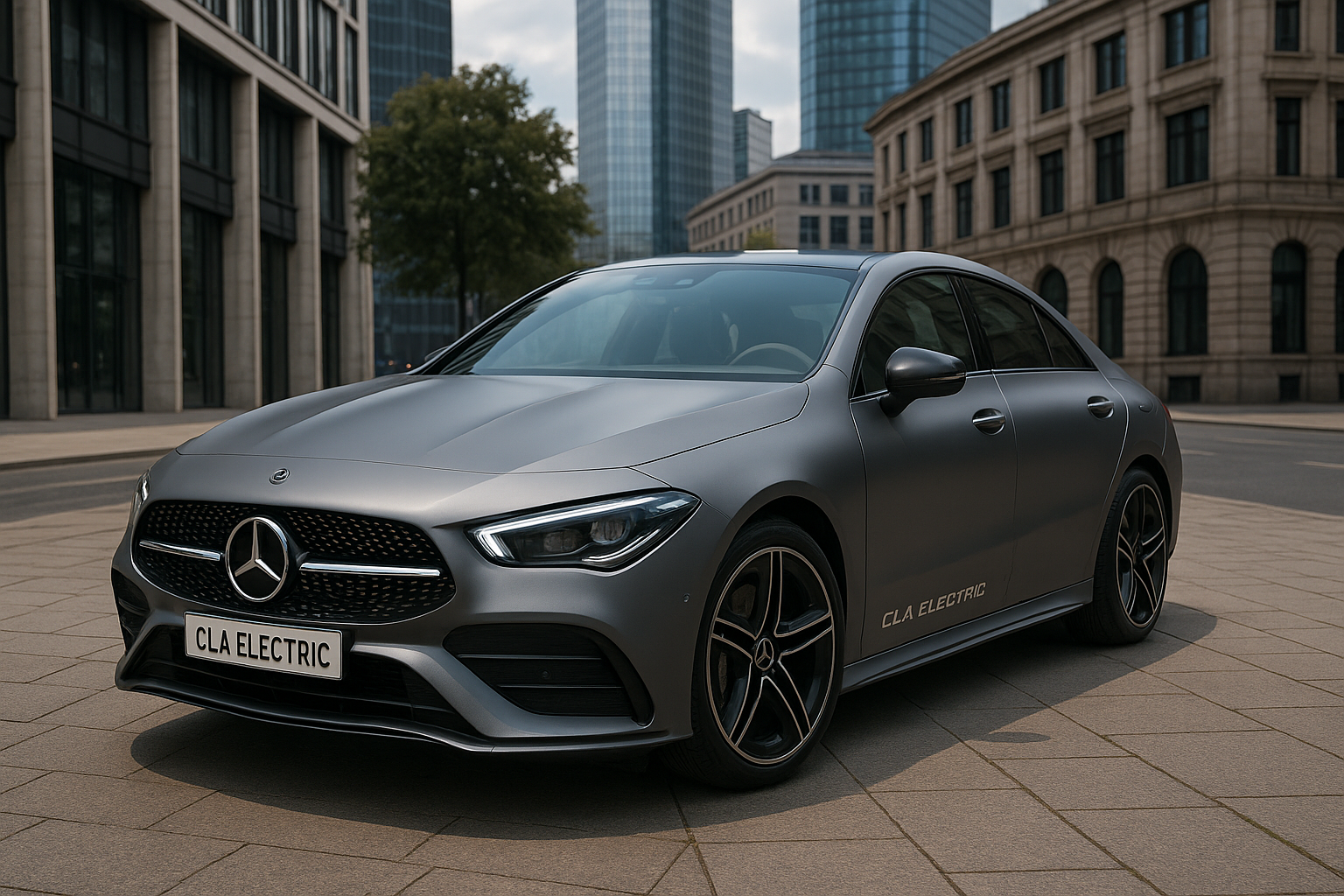
Mercedes Brings Luxury to Electric Driving
Mercedes-Benz has always been the go-to brand for luxury cars. Now, they’re bringing that same high-end experience to electric vehicles with the CLA Electric. Set to be released in July 2025, this electric sedan is going to offer the kind of style, performance, and comfort that Mercedes is known for — but with an eco-friendly twist.
If you’ve been dreaming of an electric car that doesn’t compromise on luxury, performance, or looks, the CLA Electric is going to make all of that possible.
Why the CLA Electric is a Big Deal
The CLA Electric is not just another electric sedan. It’s Mercedes—and we know that means top-of-the-line luxury with every drive. From what we’ve seen so far, this car is expected to combine sleek, futuristic design with a comfortable, high-tech interior, while still delivering the powerful performance you expect from a Mercedes.
The best part? It’s fully electric. That means you can enjoy the luxury of a Mercedes while driving a car that’s not contributing to air pollution or burning fuel. For people who want the best of both worlds — an eco-conscious car that still feels premium — the CLA Electric could be the perfect fit.
Performance You Can Count On
When you think of Mercedes, performance is never far behind. And the CLA Electric is no exception. While we don’t have all the specifics yet, it’s safe to say this car is going to be fun to drive. Expect smooth acceleration, a nice driving range, and zero emissions.
If you’re someone who loves the thrill of a smooth ride but also wants to feel good about your impact on the environment, this car delivers. Plus, with fast-charging capabilities, you won’t spend your life waiting around at charging stations. More driving, less waiting — that’s what the CLA Electric is all about.
A Luxurious Interior with All the Right Features
Mercedes is known for making interiors that feel like a luxury living room, and the CLA Electric will be no different. Inside, you can expect plush seating, top-quality materials, and an advanced infotainment system that’s easy to use and packed with features.
The digital displays and driver-assistance technologies will make sure every drive is safe, smooth, and enjoyable. Whether you’re running errands in the city or going on a road trip, you’ll feel relaxed and connected at all times.
Going Green, in Style
The CLA Electric isn’t just a luxury car; it’s a step toward a cleaner, greener future. By going electric, Mercedes is giving us a way to reduce our carbon footprint without sacrificing the driving experience. For people who want to make a positive environmental impact but don’t want to give up on luxury, this is the car to look out for.
With more and more people wanting to drive electric, the CLA Electric is Mercedes’ way of saying, “We can do both — luxury and sustainability.”
What’s Next for the CLA Electric?
We’re all looking forward to seeing the CLA Electric in action once it hits the market. It’s Mercedes’ big step into the luxury EV segment, and if the early buzz is anything to go by, it’s going to be worth the wait. The CLA Electric promises to set a new standard for what a luxury electric sedan should be.
If you’re someone who’s been waiting for a high-performance, stylish, and sustainable electric vehicle, the CLA Electric should be at the top of your list.
The CLA Electric Is Almost Here — Are You Ready?
If you’ve ever dreamed of owning a luxury electric sedan that blends high-end style, performance, and eco-friendly technology, then the Mercedes-Benz CLA Electric is exactly what you’ve been waiting for.
With its sleek design, advanced features, and eco-conscious engineering, this car is going to turn heads when it hits the streets. Keep an eye out for the official launch in 2025 — the future of driving is here, and it’s electric!
Article By
Sourabh Gupta
Blog
India’s EV Market Heats: More Players, More Competition
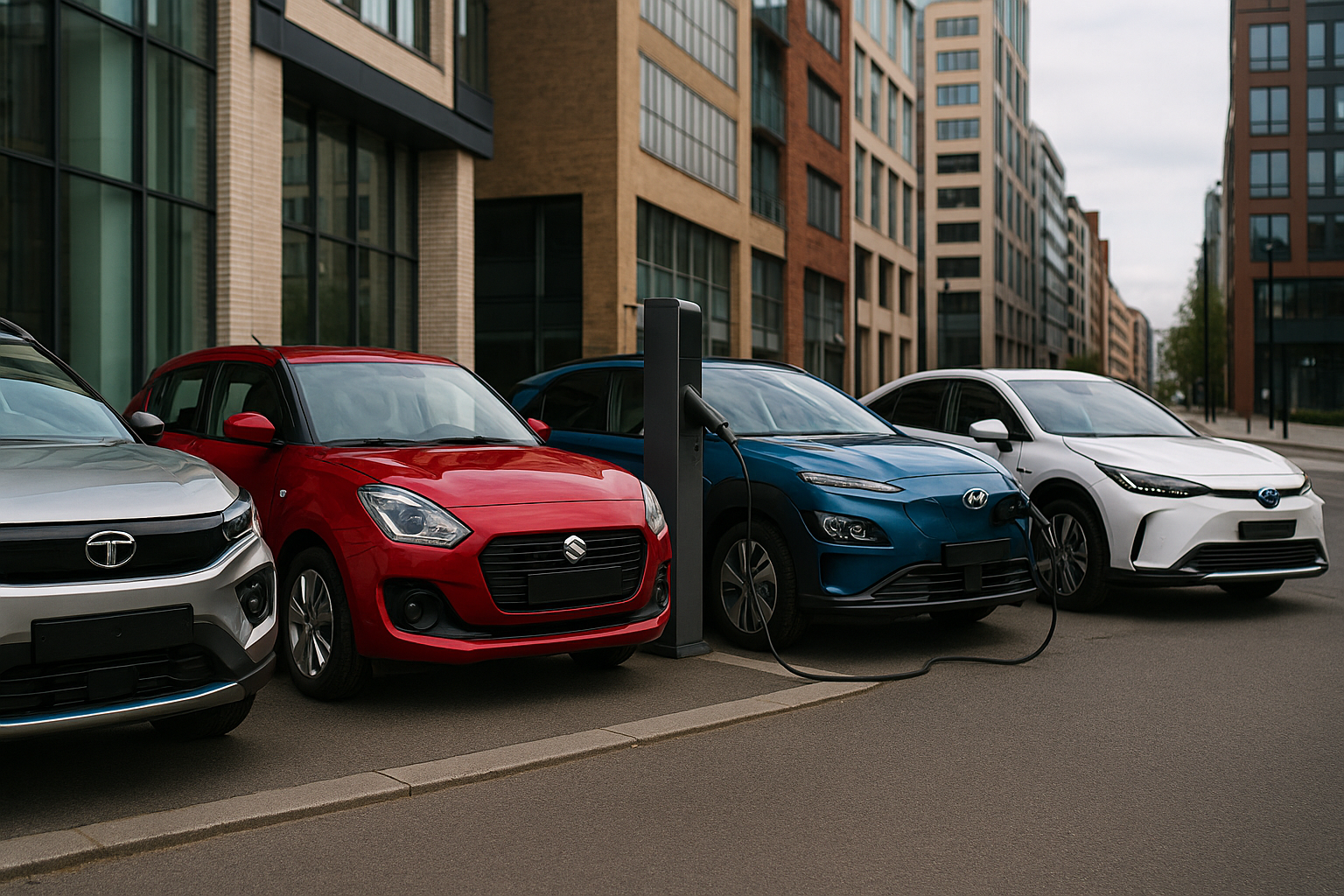
The Electric Vehicle Battle Is Just Getting Started
You know how things are changing fast with electric vehicles here in India? Well, it’s no longer just a couple of companies in the game. Tata and Mahindra have been leading for a while, but now Maruti, Toyota, and Hyundai are jumping in too. It’s turning into a proper race, and that’s great news for anyone thinking about buying an EV.
More players mean more choices, and when companies compete, it usually means better deals and cooler cars for us.
New Entrants Bring Fresh Energy
Maruti Suzuki is like the go-to brand for most Indian families because their cars are affordable and reliable. Now, if they start selling EVs, it’s going to make electric vehicles a lot more reachable for everyday folks.
Then you have Toyota and Hyundai, which have been working on electric cars globally for years. They’re bringing that know-how to India, which means better technology and cars designed to handle our roads and conditions.
This fresh blood is going to push everyone to do better, which is a win for all of us.
What This Means for Consumers
For buyers, this is the best time to consider an EV. You’ll get a wider choice of vehicles — from simple and affordable models to fancy ones packed with features.
Also, with so many companies competing, expect better batteries that last longer, faster charging times, and prices that won’t scare you away.
Charging stations will become more common, making it easier to own and use an EV without stress.
Challenges for Established Players
Tata and Mahindra have done well so far, but now the heat’s on. They’ll need to keep improving their cars and customer service to stay ahead.
More competition means prices might get friendlier, and cars will keep getting better, which is good news for everyone.
The Road Ahead: A Win for India’s Green Future
All this competition will speed up EV adoption, which means cleaner air and less pollution.
With more companies investing in EVs, we’ll see more charging points, better batteries, and more jobs related to green technology.
The future looks electric, and it’s shaping up to be an exciting ride.
Article By
Sourabh Gupta
-
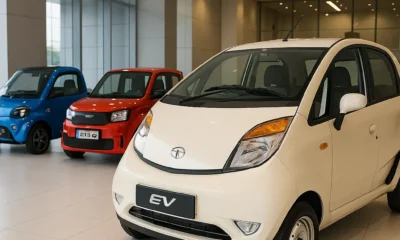
 Blog5 months ago
Blog5 months agoTop Electric Cars in India Under ₹5 Lakhs – Budget-Friendly EVs for Diwali 2025
-
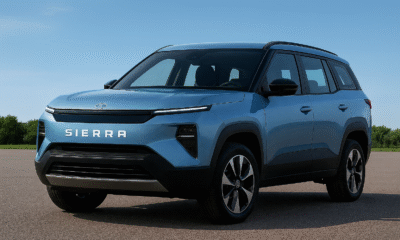
 Blog6 months ago
Blog6 months agoTata Sierra EV 2025 Launch: Price in India, Specifications & First Look
-
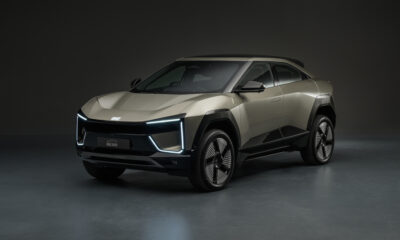
 Blog1 year ago
Blog1 year agoMahindra BE 6 An Intense Move toward the Fate of Electric Versatility
-
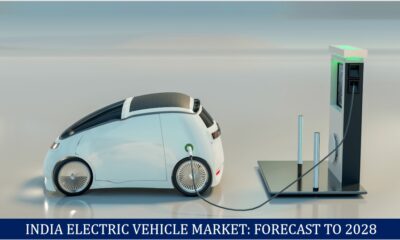
 Blog1 year ago
Blog1 year agoIndia’s Electric Vehicle Market Forecast to 2028 A Rapidly Growing Industry
-
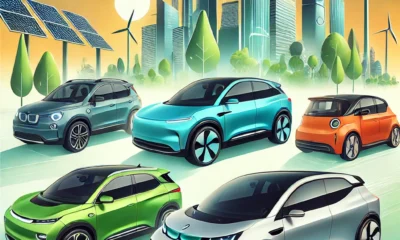
 Blog2 years ago
Blog2 years agoTop 5 best electric vehicles Under $30,000: Affordable Choices for 2024
-
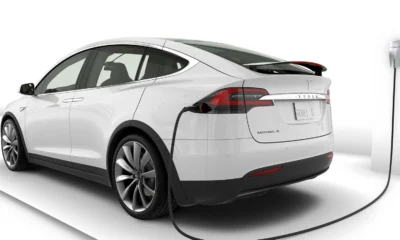
 Blog2 years ago
Blog2 years agoTop 10 Electric Vehicles of 2024: A Comprehensive Guide
-
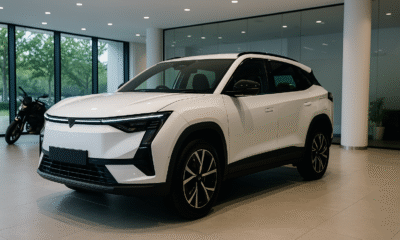
 Blog4 months ago
Blog4 months agoMahindra XEV 9e Launch in November Coming – Detailed Guide
-
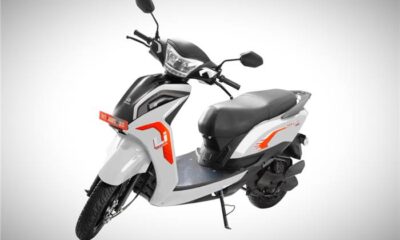
 EV news1 year ago
EV news1 year agoAmpere Magnus Neo Another Time of Electric Portability



